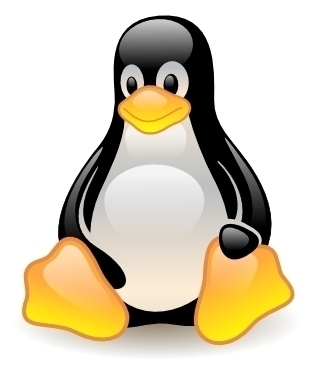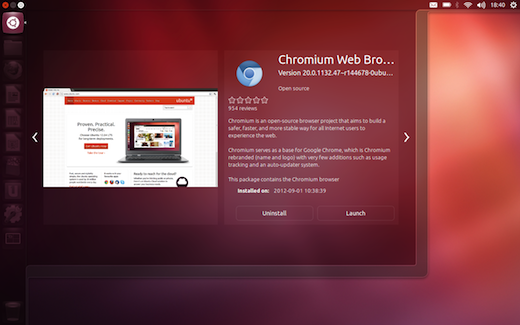The Rebirth of Linux

Tux, the unofficial Linux mascot. Resilient little bugger.
There were quite a few words on the death of Linux on the desktop lately, but people have been saying that for a long time now. Even I talked about it at one point. In some ways Linux is dead, if you judge a liveliness of a platform by how much relevance it has to the mainstream consumer. That doesn’t, however, mean that a revival isn’t possible. And amidst all these death proclamations a few key trends are emerging that could actually signal a rebirth.
In any case Linux has at its side a core community of enthusiasts who are hell bent on keeping it alive with new development, promotion, not to mention advocacy of the underlying philosophies. So even when Linux is “dead” to the mainstream, it is going to keep churning behind the scenes ad infinitum. The open source nature of the software furthermore means there is always a chance for it to become valuable to a greater number of people at some point in the future. It is hard to permanently kill something you can always freely reuse if the need or desire arises, to create something more appealing out of it.
In other words, you can kill the relevance of Linux for the mainstream, but you can’t quite kill Linux and Free Open Source Software in general.
Of course, Linux in general is quite relevant today outside of the desktop realm. Android is a dominant mobile operating system, and as techies know, it is Linux at the core.
So.. here are some of the key elements emerging that could signal the rebirth of Linux on the desktop as well.
1. Popularity of Cloud Computing
As cloud computing matures and becomes more popular the importance of which desktop operating system you are running is diminishing. This lowers the barrier to switching between platforms, making Linux based platforms a more viable option than before. Certain tasks that used to require OS-specific applications can now be done in the cloud, replacing or at least supplementing OS native solutions.
When it comes to cloud computing the desktop operating system needs only to serve as a reliable launchpad and working environment, and this is where user interface preferences can come into play. People who like Ubuntu Unity, for instance, but might have previously been put off by a lack of certain application or capability, could reconsider Ubuntu if such a capability can now be met by a cloud based solution.
Anything that lowers the barrier to switching is an opportunity for Linux to grow its user base. This is why it is smart for the upcoming version of Ubuntu to introduce Web Apps, a solution that promotes web applications into first class citizens within Ubuntu by integrating them with some key system functions. It enhances the cloud based experience without compromising it. This appears like an attempt to capitalise on exactly this trend.
2. Greater Awareness of OS Choice
Prior to the tablet and smartphone revolution that is still ongoing (some might call it the post-PC revolution), most people equated Windows with their computer, as if one was an inseparable part of the other. This is a terrible situation for any alternative operating system. Not only does it mean that the common user isn’t aware of an alternative, but they don’t even understand that it is even possible to have an alternative.
Things seem to have changed a bit. As the popularity of tablets and smartphones rose people started hearing about different platforms such as iOS and Android. Anyone even a tiny bit informed will talk about an Android phone, an iPhone, and perhaps even a Windows Phone as possible smartphone and tablet choices. This means that no operating system holds the kind of perception hegemony that Windows held for PCs.
The public appears to be more aware that alternatives are not only possible, but that they exist, and this awareness just might spill over back to the desktop. They might wonder if similar choice could exist in the desktop world as well. If there’s an alternative to Android for smartphones there may be alternatives to Windows for desktop PCs. This could open some space for Linux based desktop offerings. Of course, this also benefits Apple’s Mac.
3. Maturing Linux User Experience
We shouldn’t write off improvements being made to Linux itself, particularly the user experience. While the Linux world is just exiting a kind of user experience shake down as Unity and GNOME 3 type of interfaces made their debut and went through a maturing and polishing process, the results are promising. The best example is probably Ubuntu’s Unity in the up and coming 12.10 release.
When Unity just started off it was met with controversy, but as it matures it is winning more and more people over, and showing promise as a robust modern and attractive user interface that could measure up to Apple’s OSX. At the very least it presents a compelling alternative that might be alluring to many who are exposed to it.
The overall ease of doing things on Linux has improved. Most of the time installing applications is as easy as installing Mac apps from the Mac App Store, using the Ubuntu Software Center. The upcoming Ubuntu might even one up Apple by offering app installation from the Dash, accessible with a single click of a mouse or a key press.

Install apps directly from Dash via Previews
There’s also something to be said about the contrast between the approaches Windows 8 and Ubuntu are taking to making their operating systems fit various form factors, namely tablets and desktop PCs.
While Windows 8 introduces this stark duality between a wholesale tablet user interface and a complete, but slightly undercut desktop user interface Ubuntu Unity seems to strive towards the middle. It could end up serving both desktop and tablet users without significantly undercutting either. I suspect Dash will play an increasing role in making this happen. It is essentially a tablet UI element within a full desktop OS.
4. New Wave of Vendor Interest
While the interest of popular PC vendors seems to ebb and flow over the years as far as Linux goes, apparently coinciding with major Windows releases, we seem to be at a flow stage again. As Mark Shuttleworth, the leader of Canonical (the company behind Ubuntu) recently bragged, “companies like ASUS, Dell, and Lenovo are shipping it in volume”, and “next year 5% of the worlds PCs will ship Ubuntu pre-installed”. That’s not an insignificant number considering the fact that pre-installing Linux on computers is probably the best way of getting it into the hands of consumers and spreading awareness about it.
Is this just a temporary trend, vendors hedging their bets against Windows 8? It might not be. At the very least every time vendors do this they increase consumer awareness a little bit beyond where it already was. At some point this may cause permanent momentum.
5. Windows 8 Disruption
I’ve deliberately saved this for last, simply because it is such an obvious argument, at least to those who follow the tech industry. Windows 8 is probably the most disruptive change Microsoft has done to Windows since Windows 95, if not Windows 1.0. That’s terribly risky business, and we already have the spectators, consumers and media split on whether it is a good path forward or a complete disaster.
By some accounts this makes it a potentially bigger failure than Vista, and Vista was the last opportunity for Linux to appear more attractive. Add to it the fact that Linux is in a fairly better shape today than it was at the time Vista was making its debut, and you can easily make the case that Windows 8 could be the biggest chance Linux has had so far to snatch revolting users wondering about alternatives – especially in combination with all the other mentioned factors playing in its favour.
Disruption for PC Gaming
One of the biggest obstacles to Linux adoption was poor gaming support, and thanks to Windows 8 inspired fears we now have one of the biggest game development and distribution companies, Valve, getting behind the cause of Linux gaming. Gabe Newell, the head of Valve, famously said that Windows 8 is a “catastrophe for everyone“, and others in the industry followed up with similar sentiments. Valve is expected to release a Linux native client for its Steam game distribution service very soon.
Part of the reason why the gaming industry fears Windows 8 is the Windows Store and Xbox Live integration, which could significantly undercut Steam and other distributors by becoming the preferred way for people to get their games. Signs of Microsoft becoming more closed and Apple-like in that respect are not very encouraging either.
In any case if Windows gaming goes south Linux actually represents a logical way forward for PC gaming, if not the only way forward. Apple’s machines are quite capable of running even high end games, but it is a similarly closed ecosystem, and hardcore gamers typically want even more capability, and for a lower price. Apple’s limited selection of computers just isn’t a good fit. Linux is meant to run anywhere, and presents a polar opposite of Apple’s closed nature. For PC gaming, Linux could be perfect, if the remaining kinks are worked out, and the industry seriously gets behind it.
Even without these promising developments gaming on Linux is better than ever, with more quality games available for it than before (including popular Humble Bundle campaigns), and a much improved framework for reliably running Windows games on Linux through WINE, for more enterprising users.
While it’s not quite there yet, potential unpopularity of Windows 8 combined with renewed support by companies like Valve, could help inch it over the threshold of viability for both hardcore and casual gamers.
Conclusion
None of this is a guarantee, and as always, Linux is facing an uphill battle. This is not a proclamation of Linux’ rebirth. It is a recognition of a distinct possibility supported by a set of trends that either haven’t been at play before, or haven’t been at play to this extent. I would propose that Linux has a chance to revive its significance on the desktop, perhaps even tablets, and prove that it is far from dead. It’s perhaps just getting started.
I have to admit that I am beginning to root for it again, simply because I feel there is a bit of a void between the world of Apple and the world of Microsoft, both increasingly closed in their culture, yet increasingly more distinct from each other. It feels like being teared between two extreme camps, and when this happens, I wonder about an alternative that sits somewhere in between, perhaps providing the best of both worlds while not attempting to lock me in. It would be nice for Linux to become a respectable contender. Just maybe enough people, driven by these factors, end up feeling the same. Then Linux rebirth may occur.


Comments - 12 Responses to “The Rebirth of Linux”
Sorry but comments are closed at this time.